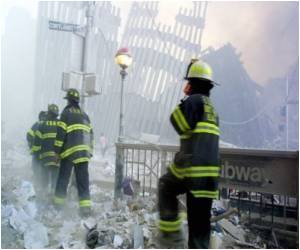Tragedy at World Trade Centre exposed close to half a million people to hazardous chemicals, environmental toxins and traumatic events.

A study of volunteers who turned out in the thousands to assist the 9/11 rescue operation, shows they, along with others who were directly exposed to the events of the 9/11 disaster, are now suffering from a range of physical and mental illnesses. At particular risk for poorer health outcomes are volunteers not affiliated with groups such as the American Red Cross, whose earlier arrival at the WTC sites and day-to-day work left them less prepared for the horrific events and injuries of 9/11.
Volunteers not affiliated with an organization were more highly exposed to the WTC disaster than volunteers affiliated with recognized organizations and were at greater risk for developing physical and mental health conditions after 9/11, according to the volunteer study. The study showed the need to provide volunteers with long-term screening and treatment for 9/11-related conditions that resulted from hazardous exposures.
A study of adults exposed to 9/11 found that being in the dust cloud, being injured on 9/11, or developing post traumatic stress disorder increased the risk of developing heart disease years after the disaster.
"This exploratory heart disease study suggests that adults who were directly exposed to the World Trade Center disaster and its aftermath have an increased risk for heart disease," said Dr. Hannah Jordan, first author of the study. "It will be important to confirm and expand upon these findings so that appropriate steps can be taken to prevent heart disease in this population."
Respiratory illness – dubbed 'World Trade Center Cough' – is also more likely to afflict first responders from the Fire Department of New York City than other U.S. males. According to the research in Preventive Medicine, bronchitis is nearly six-fold higher in young-WTC exposed firefighters. The study of 11,000 firefighters demonstrates that the firefighters exposed to the WTC disaster, along with volunteers of all kinds, continue to bear a heavy burden following their remarkable actions ten years ago.
Advertisement
Source-Eurekalert











